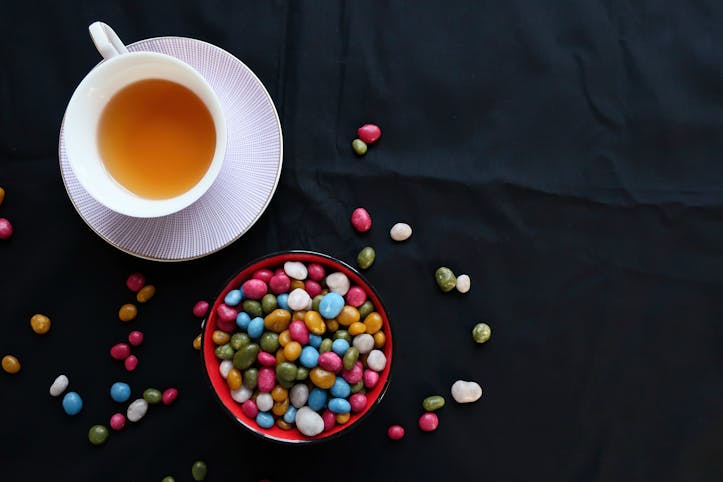Fasting Tea: Unlocking the Benefits of Black Tea Intermittent Fasting

When delving into black tea intermittent fasting, it’s essential to understand the symbiotic relationship between this age-old beverage and the popular dietary approach. Intermittent fasting (IF) is a structured eating pattern that alternates between periods of eating and fasting, which can lead to various health benefits. Incorporating black tea during fasting periods not only enhances the experience but can also amplify the positive effects of IF.
The Role of Black Tea in Intermittent Fasting
One of the main reasons black tea is highly regarded in the fasting community is due to its low-caloric profile, which does not significantly impact the fasting state. More importantly, black tea contains polyphenols, like flavonoids, which are known for their antioxidant properties. These compounds can support the body’s natural detoxification processes and contribute to overall health.
Enhancing Metabolic Health
Black tea intermittent fasting may influence metabolic health. Studies suggest that the polyphenols in black tea can help modulate blood sugar levels, which is crucial for maintaining energy while fasting. Additionally, the caffeine content in black tea provides a gentle boost in alertness and can help curb appetite, making fasting periods more manageable.
Supporting Digestive Function
During fasting, digestive rest is vital for the body to repair and rejuvenate. Black tea contains tannins, which have a soothing effect on the digestive system. This can be particularly beneficial for individuals who experience gastrointestinal discomfort during fasting.
How to Incorporate Black Tea into Your Fasting Regimen
For those practicing intermittent fasting, integrating black tea is straightforward. It’s best enjoyed plain, without the addition of milk or sweeteners, to avoid breaking the fast. Drinking a cup of black tea in the morning can kickstart your day, while sipping it throughout your fasting window can help suppress hunger and provide a comforting ritual.
Choosing the Right Black Tea
Quality matters when selecting a black tea for fasting. Opt for organic, loose-leaf teas, which tend to have higher concentrations of beneficial compounds compared to tea bags. Additionally, selecting single-origin teas can offer unique flavors and health benefits tied to their specific growing region.
Timing and Quantity
While black tea can be a great addition to your fasting routine, moderation is key. Limiting yourself to 3-4 cups throughout your fasting window is generally recommended to avoid overconsumption of caffeine. Moreover, be mindful of consuming black tea well before your eating window to ensure it doesn’t affect your sleep due to its caffeine content.
Studies Supporting Intermittent Fasting and Black Tea
Scientific research has started to shed light on the effects of combining intermittent fasting with black tea consumption. A study published in the European Journal of Nutrition found that black tea may promote weight loss and other health benefits by altering gut microbiota in ways similar to that of green tea, which is already well-known for its positive impact on metabolism.
Another research article in the journal Nutrition and Metabolism highlighted that the polyphenols in black tea play a role in fat oxidation, which can enhance the fat-burning potential of intermittent fasting. These findings suggest that black tea is more than just a fasting-friendly beverage—it’s an active participant in the fasting process.
Potential Cautions and Considerations
While black tea intermittent fasting has many advocates, it’s important to approach it with caution if you have certain health conditions. Individuals with iron absorption issues, for example, should be mindful that tannins in black tea can inhibit iron absorption. Moreover, those sensitive to caffeine should monitor their intake to avoid any adverse effects.
As with any dietary change, it’s always best to consult with a healthcare professional before starting black tea intermittent fasting, particularly for those with pre-existing health conditions or those taking medications.
Discover how black tea intermittent fasting can enhance your health regimen, from metabolic benefits to digestive support.
Recent Posts
- Fasting Tea Essentials: What Teas Can You Drink While Intermittent Fasting?
- Fasting Tea: Enhancing Your Intermittent Fasting Experience
- Fasting Tea Benefits: Can You Drink Herbal Tea During Intermittent Fasting?
- Unlocking the Secrets of Matcha Tea for Rapid Weight Loss
- Fasting Tea Essentials: Choosing the Right Blend for Intermittent Fasting
- Fasting Tea Benefits: Intermittent Fasting Rooibos Tea
- Fasting Tea: Unlocking Health Benefits with Green Fit Tea
- Fasting Tea: Exploring Herbal Options for Your Regimen
- Can I Drink Barley Bergamot Green Tea for Fast Weight Loss?
- Herbal Fasting Tea Amazon: A Guide to Choosing Your Blend
External articles
The health benefits of drinking tea while intermittent fasting. Drinking tea daily while intermittent fasting (or otherwise) can result in: Fewer hunger pangs. ... L-theanine, an amino acid found in green and black tea, can help lower stress levels, reports a 2019 study in Nutrients. The habit of brewing a cup and holding a warm mug might help ...
Tea #1: Black Tea. Black teas that are safe for fasting regimens offer a broad range of choices to satisfy your craving for flavor variation. The flavor is strong and dark. ... A study that included more than 1,400 participants showed that drinking tea during intermittent fasting enhanced weight loss, improved blood sugar levels, and enhanced ...
Yes, you can certainly drink matcha tea while fasting. Matcha is a variation of green tea. It is processed in a certain way to form a more concentrated green tea with a high level of antioxidants. A cup of matcha has close to zero caloric value, so it is safe to drink during a fast. Matcha is also rich in a class of antioxidants called ...